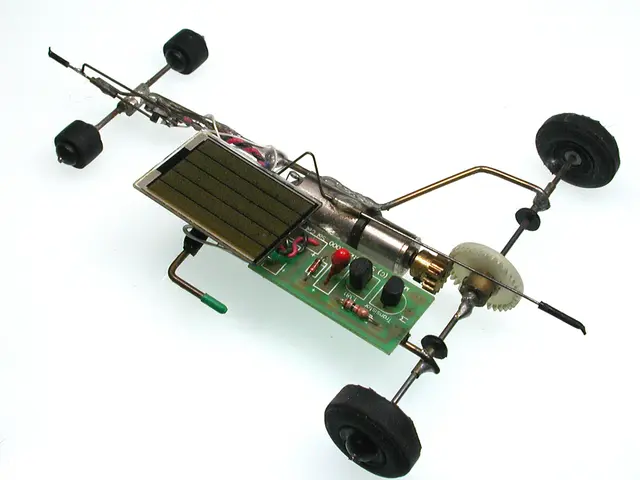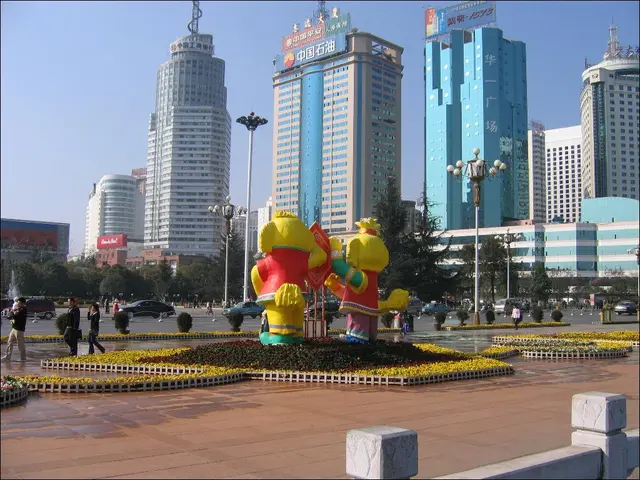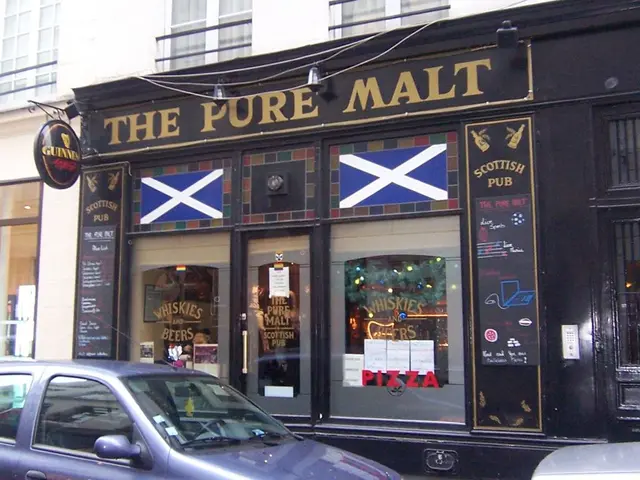Election of a New Pope: Unraveling the Money Trail
The Wealthiest Individual within the Holy See?
Today, the cardinals within the secluded Sistine Chapel are deciding on a new pope for over a billion Catholics worldwide. The Vatican has been managing billions in assets, including real estate, investments, and bank holdings, as our exploration reveals.
Cardinals locked inside the conclave have been at it since Wednesday evening, with the deadline looming for their eternal decision - the election of a new head of 1.4 billion faithful Catholics.
Pope as a Moral Authority and Head of State
When one ponders the role of the pope, a natural question emerges: Does the Pope actually earn money? Our investigation uncovers that Pope Francis, much like his predecessors, did not receive a salary. Although he didn't have a monthly income, the Vatican covered all his expenditures, ranging from dwelling expenses, nourishment, medical care, travel, and security costs.
Financial Backdrop of a Cardinal-turned-Pope
Before Francis took on the ultimate role, he served as Archbishop of Buenos Aires, where he donated most of his salary to the underprivileged. His estimated monthly earnings were around 13,000 euros. Despite not receiving a formal salary, Francis wielded significant influence, as the pope is the head of the Vatican City State and holds substantial economic and political leverage through the Vatican's Secretariat of State, congregations, and financial institutions.
Vatican's extensive Asset Portfolio
The Vatican sheds light on an intricate institutional structure, maintaining assets worth billions, encompassing real estate, investments, and bank assets. However, its financial situation is far from perfect. In 2021, the pope decreed significant salary deductions due to various factors, including pandemic-induced tourism revenue shortfalls. In 2024, the Vatican recorded a budget deficit of approximately 83 million euros.
Contrasting this news, the Administration of the Patrimony of the Apostolic See (APSA), which manages the Vatican's assets, reported 45.9 million euros of profit in its 2023 annual report, an increase of 13.6 million euros compared to the previous year. The majority (82.6%) of this profit was allocated to support the work and activities of the Roman Curia, while the remainder was reinvested into APSA to increase its assets further. The ongoing papal conclave won't affect this financial trajectory.
The Complex Financial Framework of the Vatican
The Vatican's financial management system is intricate, with several dedicated bodies having distinct roles in managing assets and generating revenue. The ASPA, IOR (Vatican Bank), Secretariat of State, Prefecture for the Economic Affairs, and the Secretariat for the Economy are central to this system.
Real Estate, Investments, and Revenue Generation
The Vatican owns a vast array of more than 5,000 historic, residential, and commercial properties across Italy, France, Switzerland, and the United Kingdom. Many properties are officially valued at a symbolic 1 euro due to their historical or religious significance. Income is generated through leases, rents, and commercial agreements such as the Bulgari store in London.
The Vatican Bank, IOR, manages funds, investments, deposits for clergy, religious orders, and Catholic institutions, and generates revenue through interest on deposits, investment returns, and service fees, though exact figures are closely guarded. Revenue from the Vatican City State comes from ticket sales at the Vatican Museums, sales of postage stamps, coins, souvenirs, and tourism services.
Recent Reforms and Oversight Measures
Under Pope Francis, the Secretariat for the Economy was established to centralize financial authority, improve transparency, and supervise the budgets of all curial divisions. Additionally, the ASIF ensures compliance with financial standards, monitoring for suspicious financial activities.
While the Vatican faces ongoing challenges related to transparency, efficiency, and legacy scandals, its vast financial holdings and strategic centralization of power will continue to shape its influence in religious and world affairs.
- The cardinals, deciding on a new pope in the Sistine Chapel, are overseeing a religious organization that manages billions in assets, including real estate, investments, and bank holdings.
- Despite not receiving a salary, Pope Francis, before becoming pope, managed a significant sum of 13,000 euros per month as Archbishop of Buenos Aires, donating most of his salary to the underprivileged.
- In 2024, the Vatican recorded a budget deficit of approximately 83 million euros, contrasting the 45.9 million euros of profit reported by the Administration of the Patrimony of the Apostolic See (APSA) in its 2023 annual report.
- The Vatican's financial management system involves several dedicated bodies, such as the ASPA, IOR (Vatican Bank), Secretariat of State, Prefecture for the Economic Affairs, and the Secretariat for the Economy, each playing a distinct role in managing assets and generating revenue.
- The Vatican owns over 5,000 properties across various countries, generating income through leases, rents, and commercial agreements, with many properties valued at a symbolic 1 euro.
- Under Pope Francis, recent reforms have included the establishment of the Secretariat for the Economy, aiming to centralize financial authority, improve transparency, and supervise the budgets of all curial divisions, and the ASIF for monitoring financial standards and suspicious activities.





